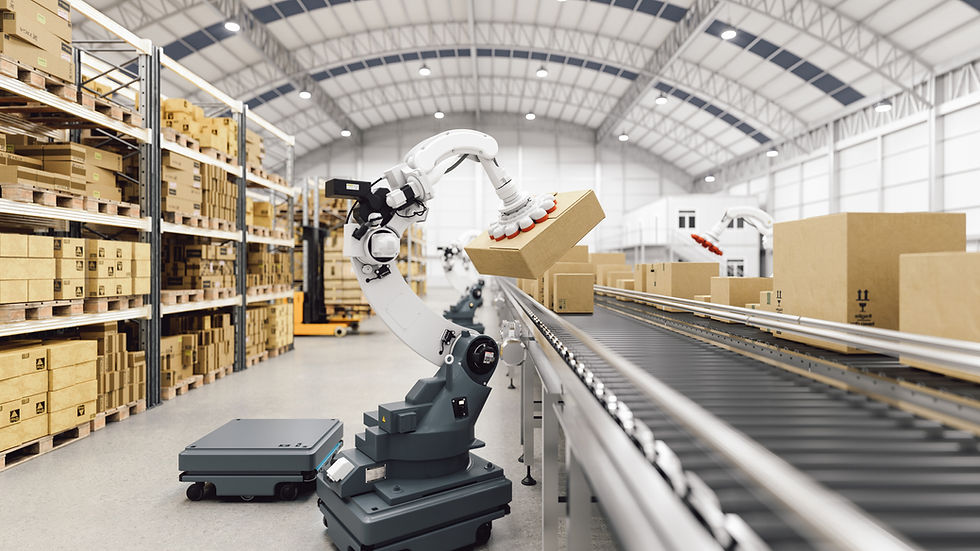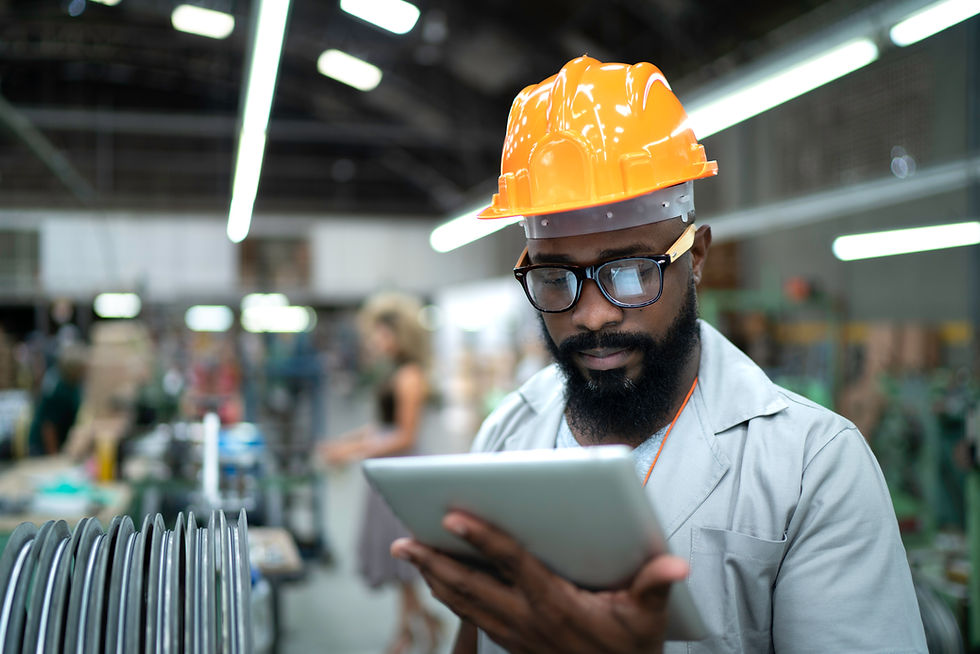Manufacturing is a crucial part of the global economy, and it is rapidly changing and constantly evolving. The advancements in technology and automation have changed the way we approach manufacturing, and the future looks even more promising. One of the key trends that is shaping the future of manufacturing is the concept of total manufacturing solutions. Total Manufacturing Solutions refer to the integration of various technologies and processes to create a comprehensive and integrated manufacturing system. This approach aims to optimize production processes, increase efficiency, and reduce costs. The ultimate goal of total manufacturing solutions is to provide a seamless and streamlined manufacturing experience for manufacturers and their customers. In this blog, we will take a look at some of the latest developments in the field of manufacturing, and how they are shaping the future of the industry.

Industry 4.0: The Fourth Industrial Revolution
Industry 4.0, also known as the Fourth Industrial Revolution, is the current trend of automation and data exchange in manufacturing technologies. It includes the integration of advanced technologies such as the Internet of Things (IoT), artificial intelligence (AI), big data and smart factories. Industry 4.0 is revolutionizing the way manufacturers operate, making processes more efficient, cost-effective, and sustainable.

Additive Manufacturing (3D Printing)
Additive manufacturing, or 3D printing, is a process of creating a physical object from a digital model. This technology is becoming more widely used in manufacturing, as it allows for faster prototyping, and the production of complex and customized products. This technology has the potential to revolutionize the way manufacturers approach product development, as it can also reduce material waste and costs, making it a more sustainable option for manufacturers.

Robotics and Automation
Robotics and automation are becoming increasingly important in manufacturing. Robotics can perform repetitive and dangerous tasks, improving efficiency and safety in the workplace. Automation can also help with precision and accuracy in manufacturing processes, reducing the chances of human error.

Smart Factories
Smart factories are the next step in Industry 4.0. They are factories that use advanced technology and automation to optimize production processes, increase efficiency and reduce costs. Smart factories are connected to the internet and use advanced technologies such as sensors, IoT, AI and other devices to gather data, which is then analyzed to improve production processes and improve efficiency. Smart factories can also be integrated with other total manufacturing solutions technologies such as 3D printing and advanced logistics systems to create a fully connected and automated manufacturing process.

Augmented Reality (AR) and Virtual Reality (VR)
Augmented Reality (AR) and Virtual Reality (VR) are being used in manufacturing to improve training and design processes. AR can be used to provide real-time information to workers on the factory floor, while VR can be used to train workers in a virtual environment before they operate real machinery.

Internet of Things (IoT)
The Internet of Things (IoT) is becoming more widely used in manufacturing. IoT devices can be used to monitor and control equipment, gather data and improve efficiency. IoT can also be used to track products and optimize supply chain processes.

Cloud Computing
Cloud computing is being used in manufacturing to improve data analysis and management. Cloud-based systems can be used to store and analyze large amounts of data, improving decision-making and process optimization.

Artificial Intelligence (AI)
Artificial Intelligence (AI) is becoming more widely used in manufacturing. AI can be used to analyze data, optimize processes, and improve efficiency. AI can also be used to predict maintenance needs and improve the overall performance of manufacturing equipment.

In conclusion, the future of manufacturing is looking bright, with new technologies and advancements constantly being developed. Industry 4.0 is revolutionizing the way manufacturers operate, making processes more efficient, cost-effective, and sustainable. Additive manufacturing, robotics and automation, smart factories, AR and VR, IoT, cloud computing and AI are some of the key technologies that are shaping the future of manufacturing. The integration of advanced technologies such as Industry 4.0, 3D printing, and smart factories, along with logistics and supply chain management systems, allows manufacturers to create a seamless and streamlined manufacturing process. These technologies are providing manufacturers with total manufacturing solutions, allowing them to optimize their processes, improve efficiency, reduce costs, and create better products. Total Manufacturing Solutions are the future of manufacturing as they provide a comprehensive and integrated approach to production that optimizes efficiency and reduces costs. The implementation of total manufacturing solutions will ultimately lead to improved customer satisfaction and increased competitiveness for manufacturers in the global market.

Comments